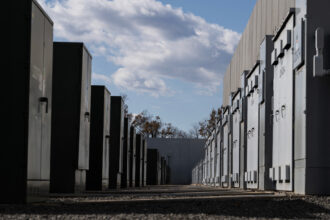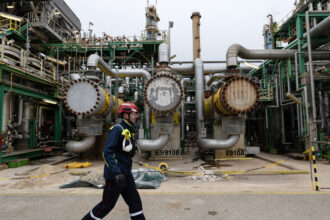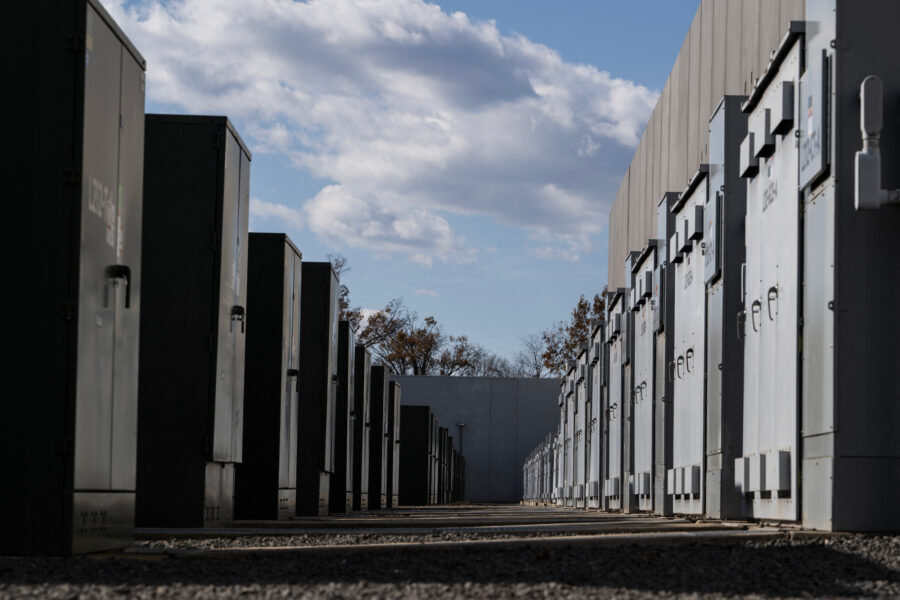In a move that could have wide ramifications for the future of biomass power nationwide, Massachusetts regulators have proposed to strictly regulate the ability of wood-burning incinerators to earn renewable power certificates.
It’s the latest twist in a long-running debate about whether biomass should qualify as a form of renewable energy and benefit from clean energy incentives.
The draft rule by the Department of Energy Resources — unveiled late Friday — would require biomass incinerators to become 60 percent more efficient in order to earn full renewable energy credits and 40 percent to get a fraction of them. It would force a 50 percent cut in planet-warming gases from biomass plants by 2030 compared to fossil fuels, and limit the sorts of "residues" and waste wood that can be burned "to discourage the poor forest management practice."
Final regulations are expected be in place by the end of the year.
Local environmentalists who have long fought a biomass boom said the announcement was a positive signal.
"We are supporting the regulations," James McCaffrey, director of the Massachusetts Sierra Club, told SolveClimate News.
Still, McCaffrey said the efficiency standard is not tough enough to ensure that facilities’ combustion emissions are better than coal’s.
"Biomass is applying for renewable energy credits in order to replace fossil fuels," he said. "We believe it should be as efficient, and have equal to or less CO2 emissions than the best technology that we have for fossil fuel."
He added: "Only the most non-devastating to the natural environment, most efficient and best designed facilities should be eligible for consideration."
Chris Matera, founder of Massachusetts Forest Watch, also welcomed the proposed regulations, with some caveats.
"These are a step in the right direction," he told SolveClimate News, but added that he sees them as more of a "speed bump" than a roadblock.
"They may end up making it difficult, or impossible, for the big electric plants to get the RECs [renewable energy credits]." However, he said, the regulations would bolster smaller combined heat and power plants that are more efficient than larger power-only plants, potentially sparking a new generation of facilities.
"We could end up with a whole bunch of little plants, which could be just as bad or even worse."
Controversial Study Sparks Change
Biomass electricity burns wood chips and forest debris to generate power. According to the Biomass Power Association (BPA), a group in Portland, Maine, which represents about 100 plants in 20 states, it’s a $1 billion a year industry.
The technology is already a mainstay of energy production, BPA says. According to the Department of Energy, biomass could supply 14 percent of the nation’s total power needs by 2030, up from about one percent today.
In Massachusetts, BPA says the fuel source makes up 50 percent of the state’s renewable energy supply. The technology qualifies as clean power under most state renewable portfolio policies.
But environmentalists have long been concerned. They say encouraging biomass production creates incentives to cut down carbon-absorbing forests to make fuel, driving deforestation and worsening warming.
A study by the Mass.-based Manomet Center for Conservation Studies, commissioned by Gov. Deval Patrick and released in June, found that certain biomass technologies produce more climate-changing emissions than coal plants for up to 40 years.
The DOER rule change was in large part prompted by the surprising results.
The fact that Massachusetts is taking a harder look at this "is huge," said Matera. He added: "It’s probably going to have international implications."
But BPA says that the Manomet study was rooted in the wrong-headed premise that the industry is chopping whole trees for incineration.
"The study measured emissions of whole forests, which skewed the results," the group said in a statement.
Industry, Labor, Wood Producers Fire Back
BPA maintains that all of the nation’s facilities burn forest waste not entire trees, and that the technology is carbon neutral. Many states, it says, are dependant on the fuel source to meet renewable energy goals.
If the rule passed it would devastate the industry, Bob Cleaves, president of BPA, said on Monday.
"The efficiency standard, we are told, is completely unachievable," he said. "We are confident that no new facilities will be built in New England based upon these rules."
BPA says a typical biomass plant in Massachusetts could lose a quarter to a third of its cash flow.
Organized labor called the regulations a jobs-killer.
In a press conference on Monday, Wayne Lehman of the Laborers Local Union 596, warned that jobs are already scarce. "We have no jobs right now. I don’t think now is the time to put stringent regulations on these plants that are going to create good jobs for us."
Local wood producers said they are concerned with forest health. Under the proposed rule, no more than 15 percent of the branches and other leftovers after timber harvests can burned by biomass plants.
Kent Lage, executive director of the Massachusetts Wood Producers Association, said the limitation would be "a major fire hazard."
"We’re going to be leaving an awful lot of tops and branches out into he woods … That stuff has to come out," he said. "That’s the fuel you’d use in the [biomass] plant. In some cases, Mother Nature would use that same fuel in the forest."
Lage said the limitation would also hit farmers’ bottom lines. "[It] is going to remove a very vital market for those folks in the wood products industry" who "need to be able to process some of this low-value wood."
Cleaves said "gubernatorial politics" influenced the rule change, and suggested it is not cast in stone.
McCaffrey of Sierra Club said the regulations are based on "solid and credible" science.
"The latest science now shows that biomass is not as green as people claimed it to be," he said, and the Commonwealth of Massachusetts has issued a "correction."
All parties said they would submit public comment on the rule. A public hearing will be held before the DOER on the draft regulation on October 15, 2010.
See also:
Biomass Industry Wants New Boiler Rules from EPA
Liquid Coal and Biomass Plant, Nation’s First, Stirs Controversy in Pennsylvania
All Biomass Is Not Created Equal, At Least in Massachusetts
Dirtier Than Coal? Under Fire, Institute Clarifies Its Claim About Biomass
New Questions about Toxic By-Products of Biofuel Combustion
Expiring Tax Credits Imperil America’s Booming Biomass Industry
Biochar and George Monbiot’s Misguided Rant
Forests Caught in Tug-of-War Over Biofuel Rule
About This Story
Perhaps you noticed: This story, like all the news we publish, is free to read. That’s because Inside Climate News is a 501c3 nonprofit organization. We do not charge a subscription fee, lock our news behind a paywall, or clutter our website with ads. We make our news on climate and the environment freely available to you and anyone who wants it.
That’s not all. We also share our news for free with scores of other media organizations around the country. Many of them can’t afford to do environmental journalism of their own. We’ve built bureaus from coast to coast to report local stories, collaborate with local newsrooms and co-publish articles so that this vital work is shared as widely as possible.
Two of us launched ICN in 2007. Six years later we earned a Pulitzer Prize for National Reporting, and now we run the oldest and largest dedicated climate newsroom in the nation. We tell the story in all its complexity. We hold polluters accountable. We expose environmental injustice. We debunk misinformation. We scrutinize solutions and inspire action.
Donations from readers like you fund every aspect of what we do. If you don’t already, will you support our ongoing work, our reporting on the biggest crisis facing our planet, and help us reach even more readers in more places?
Please take a moment to make a tax-deductible donation. Every one of them makes a difference.
Thank you,











